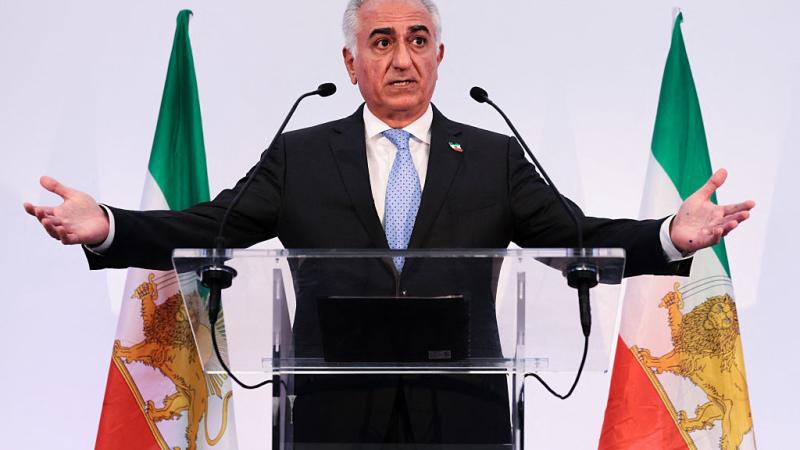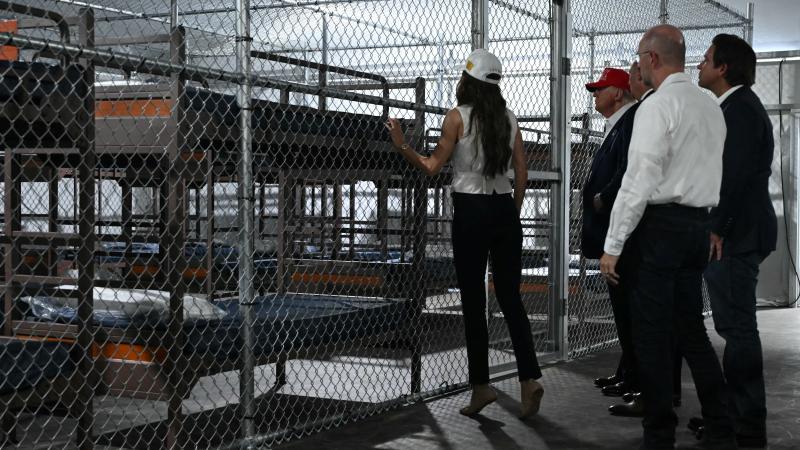Michigan Ford battery plant wins award for 'Worst Economic Development Deal of the Year'
The award bestowed by The Center for Economic Accountability recognizes a government subsidy of a private company in the name of “job creation” and economic growth that exemplifies wastefulness and ineffectiveness.
A $1.75B planned subsidy for Ford’s Motor Co.’s Marshall electric vehicle battery plant that slashed $1 billion in planned production and cut 800 promised jobs has won the annual award for America’s “Worst Economic Development Deal of the Year” for 2023.
The award bestowed by The Center for Economic Accountability recognizes a government subsidy of a private company in the name of “job creation” and economic growth that exemplifies wastefulness and ineffectiveness.
When Gov. Gretchen Whitmer announced Ford’s $3.5B Marshall electric vehicle plant, it was expected to employ 2,500 people with “good-paying” jobs. Now, that plant will employ 800 fewer people making an average wage of $45,136 – about $22 an hour.
Michigan’s subsidy of the venture between Ford and Chinese battery manufacturer Contemporary Amperex Technology Co., Limited won for its $700,000 per-job price tag, use of unrealistic “job multipliers” and an uncertain future for consumer preferences, federal policy and technological advancements.
“Michigan’s elected officials used numbers pulled out of thin air to commit taxpayers to a 15-year payment plan for a project that held up for just nine months before economic headwinds, regulatory uncertainty and industry trends intervened with a dose of reality,” CEA President John C Mozena said in a statement. “If a private-sector financial advisor or fund manager had made this kind of hilariously unjustifiable investment with their clients’ money they’d have been fired, sued and would probably already be in jail. When politicians do it, they get reelected.”
The $1.75B subsidy included $630M in site infrastructure development, $772M in tax credits over 15 years through the Michigan Strategic Neighborhood Fund, a $120M grant through the Michigan Strategic Site Readiness Program, a $210M grant through the Michigan Critical Industry Program and $36M through the Jobs for Michigan Investment Fund Loan Program.
The subsidy is $750M more than taxpayers originally planned to spend. For context, $1.75B is:
More than Michigan paid out in unemployment benefits to every unemployed person in 2021.Four times more than all Michigan homeowners combined were able to deduct in homesteadproperty tax exemptions in 2021.Four times the amount of all state tax credits for low-income and at-risk households. including the Earned Income Tax Credits and property tax credits for senior citizens, veterans, and people withdisabilities.More than a year’s worth of state government revenue sharing with the state’s municipalgovernments.
In September, the Detroit Free Press reported that political groups tied to Whitmer spent $100,000 to run a public relations campaign against local Marshall-area residents who opposed the deal.
In Nov. 2023, Dr. Timothy Bartik of the W.E. Upjohn Institute for Employment Research in Kalamazoo Bartik found that “if the Ford project had a more typical multiplier—2.5 rather than 4.38—the project’s gross benefits would be less than the incentive costs.”
In September, Ford paused the project during a United Auto Workers’ strike, citing lower-than-hoped consumer demand for electric vehicles, and ongoing regulatory uncertainty over whether Chinese battery maker CATL’s role in the joint venture would make vehicles produced using the plant’s batteries ineligible for $7,500 federal tax credits for American-made EVs.















